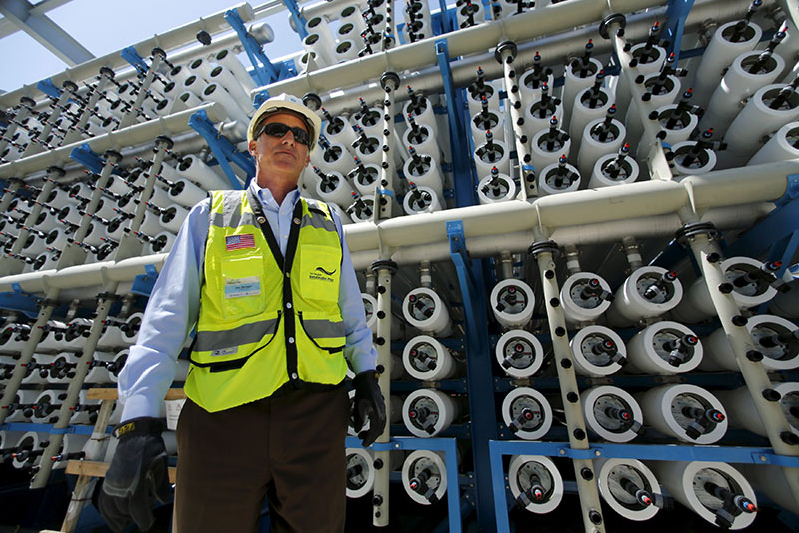
A judge in California has cleared the way for drought regulators to go after people accused of illegally diverting water. To meet the shortfall, the state is relying on desalinization plants to extract potable water from the Pacific Ocean.
According to Dale Kasler of the Sacramento Bee, Sacramento Superior Court Judge Shellyanne Chang rejected a Delta water district's request for a preliminary injunction against the State Water Resources Control Board. The decision would allow the state agency to go after water districts accused of taking water where they had no legal right to do so.
"This certainly is a win," said David Rose, staff counsel at the water board.
Kasler reported that Chang previously ruled against the state board last month by granting a temporary restraining order to several water districts, including the West Side Irrigation District in the Delta. The board responded by rewriting and reissuing the notices, highlighting that water districts had the right to challenge the state's findings.
"The district is facing fines of up to $10,000 a day for every day it drew water from the river, although it could plead its case before the state board in an administrative proceeding," Kasler wrote.
Chang noted that the rewritten notices give water districts due process, adding that the Delta district can pursue "a full administrative hearing with the opportunity for both sides to present evidence."
The quest to keep California running during an unprecedented drought has led the state to consider building new desalinization plants to meet its water needs. Eric Niiler of Wired described how the process is supposed to work.
"Desalinization has two main approaches: distillation (a variant on the process for making booze), which heats seawater and collects the salt-free vapor for recondensation into a liquid, and reverse osmosis, which pushes water at high pressure through membranes that leave clean water on one side and a concentrated brine on the other," Niiler wrote.
According to Niiler, engineers in San Diego are about to finish building a new $1 billion desalinization plant, the largest in the Western Hemisphere, that will provide a water supply for 300,000 people each day. Scott Maloni, spokesman for developer Poseidon Water, noted that the plan to build the plant started back in 1998 with a proposal.
"Ninety-eight percent of the water for San Diego has to be imported from Northern California or the Colorado River," Maloni said. "Southern California is an arid region, and climate scientists say this drought cycle will be more severe and more frequent in the future. Even if it starts raining tomorrow, we will still need it."
However, Niiler pointed out that desalinated water "costs twice as much as existing imported water."
"San Diego ratepayers will fork over an extra $5 to $7 per month for the next 30 years to cover the difference," Niiler wrote. "Of course, it'd be nice if those costs kept going down."
Maloni contended that desalted water will eventually get cheaper as new technologies come online.
"The polyamide nylon membranes that remove marine salts and minerals last longer now-seven years instead of wearing out after three or four-and it now takes less pressure to push the water through because of technical improvements, including new ceramic pressure exchangers that boost the efficiency of the process," Niiler wrote.
Mechanical engineer Rohit Karnik told Niiler that his team at MIT has been working on making single-layer membranes from graphene, which is cheap and has the potential to lower energy costs.
"If we want quantum leaps in performance, we have to look for other materials," Karnik said. "We are just starting to make these membranes. But it will be a few years before we truly know their potential."
Niiler predicted that desalted water would make up 7 percent of San Diego's water supply by 2020.






